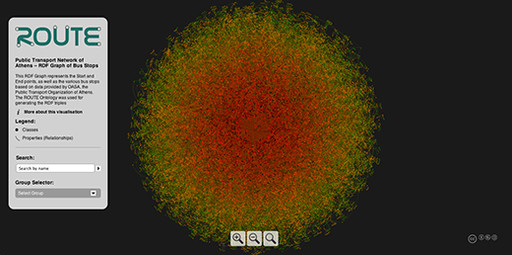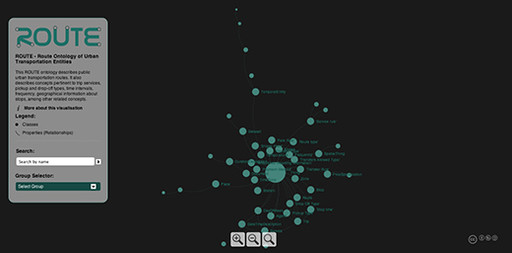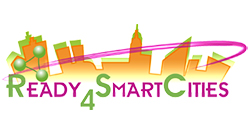-
- 16 NovKas Oosterhuis keynote speaker at SCALELESSSEAMLESS - International Symposium on integrated planning processes
- 14 Nov McNeel Hackfest in protoSPACE
- 12 OctFabrication Based Design and RhinoVAULT workshop
- 11 OctBook launch presentation: Hyperbody, First Decade of Interactive Architecture
- 30 AugHenriette Bier @ Blankensee-Colloquium 2012 on Neighborhood Technologies
- 29 JunMSc1 reNDSM Design Studio Final Reviews @ NDSM loods
- 23 MayLunch Lecture by ROK partners Silvan Oesterle and Matthias Rippman
- 07 MayLecture: Digital Prototyping by Jeroen van Ameijde
- 07 MayHot-Cold Transition Workshop, protoSPACE, 7th - 12th of May 2012
- 23 AprLecture: Cognition, People and Design
-
-
Achilleas Psyllidis's project "ROUTE – Route Ontology of Urban Transportation Entities" wins the 1st Prize in the LD4SC-15 – Linked Open Data for Smart Cities Summer School.
The goal of the project was to generate and publish an existing large-scale open dataset as Linked Open Data, in order to be used more efficiently in several Smart City applications. In particular, the ROUTE project had as use case the open dataset of the Athens urban transportation network, provided by the OASA (Athens Urban Transport Organization), OSY (Road Transportation), and STASY (Urban Railways) companies. The data include the full network of stops and routes for bus, trolley, metro, subway, tram, and commuter rail, as well as the start- and endpoints, intermediate stops, and full timetable of all the aforementioned means of transport. They consist of approximately 2.1 million individual records, distributed across 9 different data subsets.
At present, these publicly available data comprise a 3-star dataset, based on the Tim Berners-Lee open data deployment scheme. Subsequently, they present several limitations in terms of applicability and further usability in Smart City applications. The goal was thus to upgrade them to a 5-star dataset, fulfilling all the Linked Data principles.
The ROUTE project followed the complete Linked Data cycle, from specification, to ontology-based data modeling, RDF triples generation, linking to external datasets, publication, and finally exploitation and use in semantic web applications for cities.
For the data modeling part, the Route Ontology of Urban Transportation Entities (ROUTE) was developed, comprising 261 Entities, reusing 2 existing ontologies, and aligned with 15 external structured vocabularies for Linked Data. The ontology formally describes public urban transportation routes. It also describes concepts pertinent to trip services, pickup and drop-off types, time intervals, frequency, geographical information about stops, among other related concepts. The ROUTE Ontology further offers multilingual support, as its main concepts and object properties are available in English, French, Greek, and Irish. Using ontology matching and alignment techniques it allowed for the establishment of links between the various data sets and facilitated the data mapping process. The result was the generation of approximately 4.6 million RDF triples that were published to the Linked Open Data Cloud (LOD Cloud).
The resulting triples were further linked to relevant open datasets, so as to allow the performance of complex queries. In this way, the data can provide more meaningful information for inclusion in Smart City applications, as well as for planning and decision-making purposes.
The project was developed in collaboration with Matthew Horrigan (PhD Candidate, University College Dublin), Oudom Kem (PhD Candidate, EMSE), and Diarmuid Ryan (Computer Scientist, University College Dublin).
The 1st Summer School on Smart Cities and Linked Open Data (LD4SC-15) targeted researchers and professionals from both industry and academia, with the goal of using Linked Open Data technologies in the domain of Smart Cities. It was the first one organized in this topic worldwide and was supported by the READY4SmartCities FP7 Coordination and Support Action. It was organized by the Ontology Engineering Group of the Universidad Politécnica de Madrid (UPM), the Information Technologies Institute (ITI), and was further sponsored by the SWIMing (Semantic Web for Information Modeling in Energy Efficient Buildings) H2020 project.
LD4SC-15 was held from June 7 to June 12, 2015 in Cercedilla, Madrid, Spain.


 Facebook/
Facebook/
 Twitter/
Twitter/
 RSS
RSS

